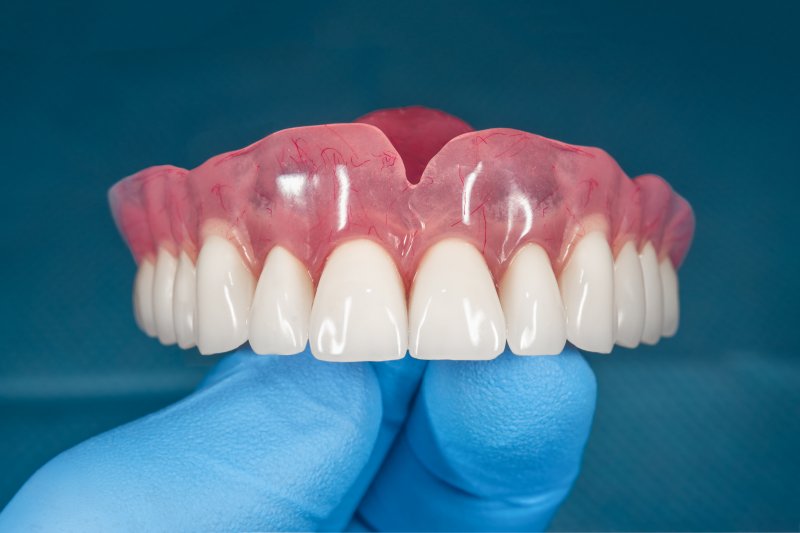
Dentures are a great way to restore a smile after extensive tooth loss. However, as great and reliable as they are, they cannot account for the changes that a patient’s mouth undergoes over time. Without regular adjustments, the denture will eventually cause oral health concerns like sores and infections due to fitting poorly. That’s why every year or two a denture will need a reline. Here are a few ways you can tell that your dentures might need a reline and what to expect during the process.
How Can I Tell If My Dentures Need a Reline?
An older denture needs repairs if you can see cracks or warping in its base or teeth. Similarly, dentures that once fit well can begin to feel awkward or uncomfortable as the mouth changes with age. These are all signs that you should see a dentist about getting your dentures adjusted. Poorly fitting dentures might cause issues with chewing and speaking as they slip out of place in the mouth and can lead to a variety of oral health complications, including:
- Bacterial or fungal infections.
- Sores or irritation at points of contact with your gums.
- Wearing down of soft tissue and the jawbone.
What Types of Denture Relines Are There?
If your dentures aren’t fitting correctly, minor adjustments can be performed during a normal dentist appointment, but to address major issues, your restoration might need to be sent off to a lab. Your dentist has two ways to adjust your dentures, and the right method for you depends on the condition of your mouth.
Hard Reline
Hard relines serve to adjust the denture’s fit due to the way the mouth changes shape as it ages. These adjustments involve placing hard material within the denture’s lining so it can provide a better grip. A denture typically requires a new hard reline every few years.
Soft Reline
A soft reline is typically used for denture patients recovering from oral surgery and can allow the denture to function as a pressure bandage at the site. This can be performed as a full reline of the whole denture or a partial reline at the sensitive point of contact. For this adjustment, a soft material is applied to the lining of the denture to protect the tender area, and since this material tends to wear away quickly, this reline must usually be reapplied more frequently.
You should never attempt to repair or adjust your denture on your own due to the risk of damage to the appliance and to your mouth. By seeking a denture reline when you need it and practicing excellent oral hygiene, your restoration can serve you well for several years to come!
About the Practice
EMA Dental serves the oral health needs of patients in the area of Northampton, MA. Led by Drs. Vincent Mariano, Lisa Emirzian, Alissa Mariano, Steven Johnson, and Rebecca Cohen, the dedicated staff provides high-quality dental care using the latest technology while maintaining a welcoming and comfortable environment. Services include preventive, restorative, cosmetic, and emergency dentistry in addition to denture services. For more information on getting your dentures adjusted, contact the practice online or call the Northampton office at (413) 584-4900.
